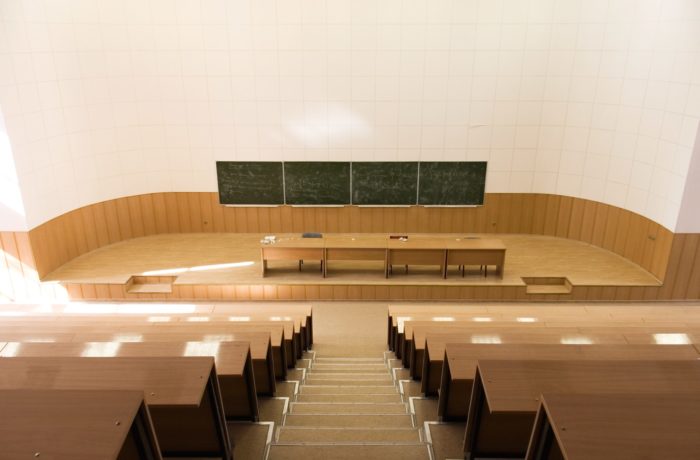
Loyola University Chicago faces a class action lawsuit after allegedly failing to refund students when the COVID-19 crisis prompted colleges to move online.
The Loyola University class action lawsuit was filed by Andreea Gociman who says she is the mother of a second-year undergraduate attending the private, Catholic university, who is majoring in History.
She says that her son chose the school for its excellent reputation for in-person instruction, as well as the quality and breadth of its programs.
Gociman explains that in order to slow the spread of the coronavirus, Loyola University Chicago stopped holding in-person classes on March 12, 2020.
At this point, the school then moved classes online. Despite this transition, the school has allegedly not provided any reimbursement for tuition of fees paid to the school.
Gociman notes that the university received more than $10 million from the Coronavirus Aid, Relief, and Economic Security Act, which was intended to help offset the costs incurred by the university because of the coronavirus.
However, despite this assistance, the school as allegedly chosen to profit further from the coronavirus at the expense of its students and their families.
Has your education or the education of your loved ones been impacted by the coronavirus pandemic? Get legal help by clicking here.
The Loyola University tuition class action lawsuit states that the school should have refunded a prorated portion of fees and tuitions that covered the latter part of the spring semester.
Gociman argues that though the school moved its classes online, Loyola students received far from the same quality of education that they were receiving in the classroom.
She notes that many students chose Loyola specifically for its in-person instruction, student and professor interaction, as well as for its wide range of on-campus activities.
Allegedly, many Loyola students and their families would not have been willing to pay as much as they did for a Loyola education had they known it would be held online and not in person.
The Loyola University tuition class action lawsuit aims to hold the school liable for breach of contract, restitution based on quasi-contract, and conversion. Allegedly, the school failed to provide the services for which students paid, and did not fulfill its obligation to students.
According to Gociman, the school’s refusal to refund represents an unlawful retention of funds.
In particular, the Loyola COVID-19 closures class action lawsuit takes issue with the school’s choice to not refund fees paid by students to cover technology, activities, facilities, and others. Allegedly, these are fees designed to cover in-person experiences that simply cannot be replicated online.
 In Gociman’s words, students paid the school “for access to buildings and facilities that students were not permitted to enter, equipment and technology that they could not use, internships in which they could not participate, and much more.”
In Gociman’s words, students paid the school “for access to buildings and facilities that students were not permitted to enter, equipment and technology that they could not use, internships in which they could not participate, and much more.”
To support the claim the the schools’ in-person educational programs are more valuable than those offers online, the Loyola COVID-19 closures class action lawsuit explains that Loyola offers some online classes and degrees, but charges less than it does for its in-person instruction.
Allegedly, this price difference points to the school’s knowledge that an online education is less valuable to many students than in-person instruction.
According to Gociman, the school charges online students less in tuition and fees than it does for its in-person students. She states that this difference acknowledges that online students have less access to campus resources than on-campus students do.
To further stress that Loyola is fully aware of the value of an in-person education, Gociman notes that the school touts the value of an on-campus, in-person experience in its advertisements, using this value to attract students.
She cites several passages of ad copy, noting that the school references “the classes you take, to the people you meet, to the places you see” at Loyola in describing the “Loyola experience.” However, for the duration of the spring 2020 semester, students were reportedly unable to access the full Loyola experience.
Gociman is represented by Elizabeth A. Fegan of Fegan Scott LLC and Shanon J. Carson, Ellen T. Noteware, and E. Michelle Drake of Berger Montague PC.
The Loyola University Tuition Class Action Lawsuit is Andreea Gociman v. Loyola University, Case No. 1:20-cv-03116, in the U.S. District Court for the Northern District of Illinois.
Join a Free Coronavirus College Refund Class Action Lawsuit Investigation
If your college or university closed because of the coronavirus, but you did not receive a refund for tuition, room and board or other fees, you may be able to join this coronavirus school refund class action lawsuit investigation.
ATTORNEY ADVERTISING
Top Class Actions is a Proud Member of the American Bar Association
LEGAL INFORMATION IS NOT LEGAL ADVICE
Top Class Actions Legal Statement
©2008 – 2026 Top Class Actions® LLC
Various Trademarks held by their respective owners
This website is not intended for viewing or usage by European Union citizens.















One thought on Loyola University Class Action Says Students Need COVID-19 Refunds
Please add me